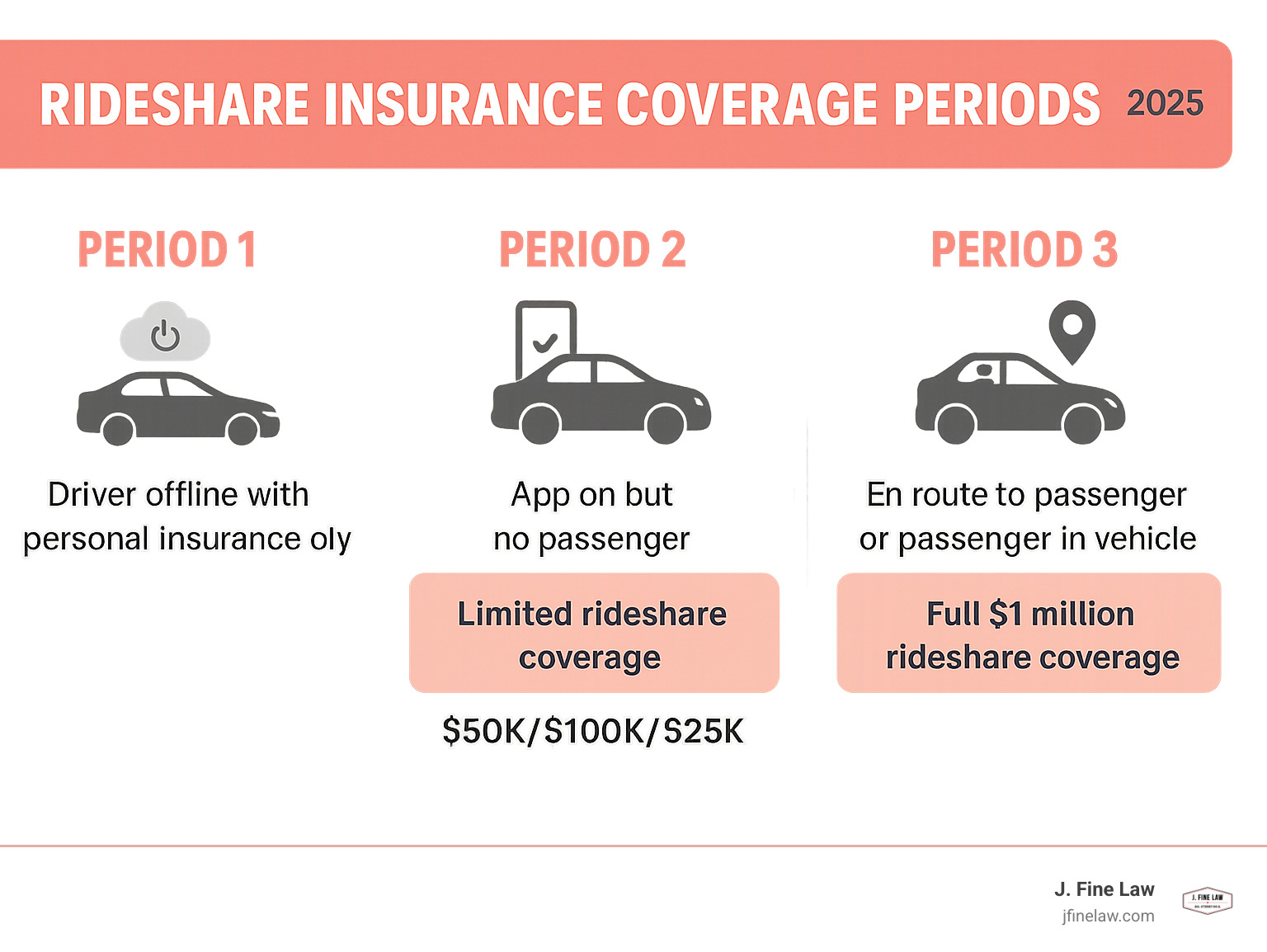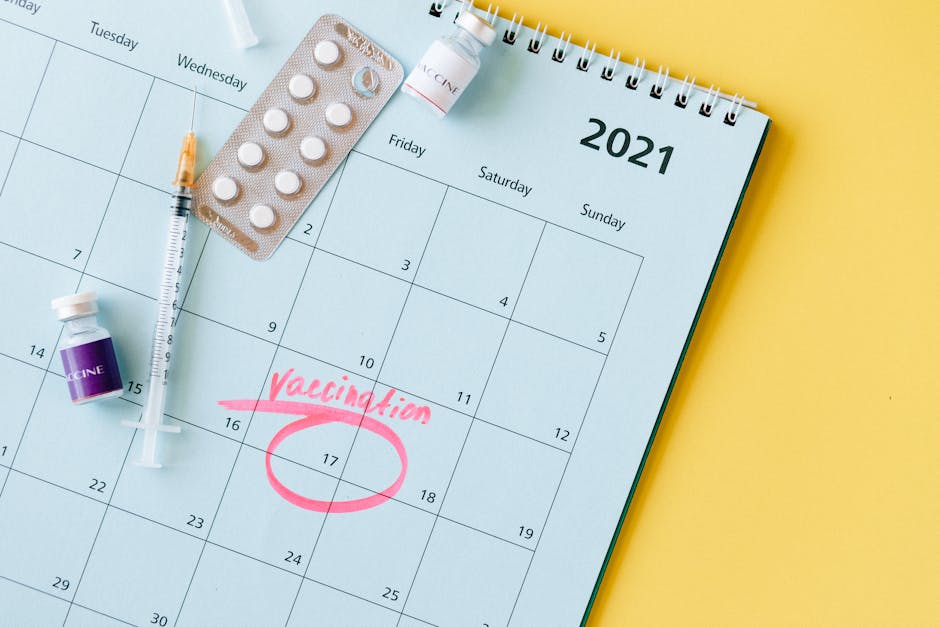Why Rideshare Accidents Need Specialized Legal Help
A rideshare accident lawyer specializes in the complex legal issues that arise when Uber, Lyft, or other rideshare vehicles are involved in crashes. These cases are far more complicated than regular car accidents due to multiple insurance policies, corporate liability questions, and shifting coverage based on the driver’s status at the time of the crash.
You need a specialized lawyer because:
- Driver Status Matters: Insurance coverage changes based on whether the driver was offline, waiting for a ride, or actively transporting a passenger.
- Multiple Insurance Policies: A single accident can involve the driver’s personal auto insurance, the rideshare company’s commercial policy, and third-party policies.
- Corporate Liability: Determining if Uber or Lyft can be held responsible requires specific legal knowledge.
- Complex Evidence: App data, GPS records, and internal company reports are crucial but difficult to obtain.
- Higher Stakes: Rideshare companies carry $1 million liability policies, creating the potential for larger settlements.
The legal landscape is complicated because rideshare drivers are independent contractors, not employees. This creates unique liability questions that many traditional car accident lawyers may not be equipped to handle. As Jason Fine, a Pennsylvania Super Lawyer with over 25 years of experience, I’ve successfully handled numerous rideshare accident cases and understand the strategies needed to secure maximum compensation. My team has recovered millions for clients injured in Uber and Lyft accidents throughout Pennsylvania and New Jersey.
What Makes Rideshare Accidents Legally Complicated?
Rideshare accidents are a breed apart from typical car crashes. The complexity stems from the rideshare business model itself.
First, the independent contractor status of drivers allows rideshare companies to limit their direct responsibility, often pushing liability onto the driver’s personal insurance. This makes it difficult to determine who is financially responsible for your injuries.
Second, the web of multiple insurance policies is tangled. A crash can involve the driver’s personal policy and the rideshare company’s commercial policy, which changes depending on the driver’s status in the app (offline, waiting for a ride, or on a trip).
Third, corporate liability is a major hurdle. Proving Uber or Lyft is responsible for issues like inadequate driver background checks or faulty app technology requires a deep understanding of evolving case law.
Finally, third-party fault can add another layer. If another driver, a pedestrian, or a cyclist contributed to the crash, they must also be held accountable. Understanding these complexities requires a deep knowledge of state-specific laws in places like Pennsylvania and New Jersey.
| Factor | Traditional Car Accident Claim | Rideshare Accident Claim |
|---|---|---|
| Liable Parties | Typically drivers of involved vehicles. | Rideshare driver, rideshare company (Uber/Lyft), other involved drivers, and potentially third parties. |
| Insurance Policies | Personal auto insurance policies of involved drivers. | Personal auto insurance of the rideshare driver, the rideshare company’s commercial insurance (which varies based on driver’s “status”), and your own uninsured/underinsured motorist coverage. |
| Evidence Needed | Police report, photos, witness statements, medical records. | All of the above, plus rideshare app data (driver’s status, trip logs), company records, and potentially vehicle black box data. |
Common Causes of Uber and Lyft Accidents
While any car accident can have multiple causes, certain factors are more common in rideshare incidents:
- Distracted Driving: Drivers must interact with their smartphones to manage the rideshare app, accept rides, and steer, taking their attention off the road.
- App Usage: The pressure to quickly accept rides and follow GPS directions can lead to hasty decisions and divided focus.
- Driver Fatigue: Many drivers work long hours, often in addition to other jobs, leading to exhaustion and impaired reaction times.
- Speeding: Drivers may speed to complete trips faster, increasing the risk of a crash.
- Poor Vehicle Maintenance: As independent contractors, drivers are responsible for their own vehicle upkeep. Neglected maintenance on brakes, tires, or lights can lead to accidents.
For a list of serious rideshare incidents, including car accidents and assaults, you can visit www.WhosDrivingYou.com.
How a Rideshare Accident Lawyer Secures Your Compensation
After a rideshare accident, you’re facing massive corporations like Uber and Lyft, whose legal teams aim to pay as little as possible. A rideshare accident lawyer levels the playing field, acting as your advocate to fight for fair compensation.
Our process begins with a thorough investigation, gathering police reports, witness statements, medical records, and crucial rideshare app data. We then move to negotiation with insurers, countering their tactics to devalue your claim. Our goal is to maximize your settlement by accounting for all current and future damages. If a fair offer isn’t made, we are fully prepared to take your case to court through the litigation process.
What Steps Should You Take Immediately After a Crash?
Your actions in the moments after a crash are critical for your health and your legal claim. Follow these steps:
- Call 911: Report the accident and any injuries to ensure medical help arrives and an official police report is created.
- Seek Medical Attention: Even if you feel fine, get a medical evaluation. Adrenaline can mask serious injuries, and a medical record links your injuries to the crash.
- Document the Scene: If it’s safe, take photos of vehicle damage, their positions, skid marks, traffic signs, and your injuries.
- Get Witness Information: Collect names and contact details from anyone who saw the accident. Their testimony can be invaluable.
- Report in the App: Report the accident through the Uber or Lyft app to create an official record with the company.
- Don’t Give a Statement: Politely decline to give a recorded statement to any insurance adjuster until you have spoken with a lawyer.
- Contact a Lawyer: The sooner you contact a rideshare accident lawyer, the faster we can begin protecting your rights and preserving evidence.
The Role of a Rideshare Accident Lawyer in Your Case
When you hire us, we become your investigative team and legal warrior. Our role includes:
- Case Investigation: We dig deep into evidence, especially rideshare app data, to determine the driver’s status and which insurance policy applies.
- Identifying All Liable Parties: We analyze the accident to hold every responsible party accountable, whether it’s the rideshare driver, the company, or another motorist.
- Calculating Total Damages: We work with experts to calculate the full extent of your losses, including future medical costs, lost earning capacity, and pain and suffering.
- Handling All Communication: We take over all communication with insurance companies and opposing counsel, so you can focus on your recovery.
- Fighting for Fair Compensation: Our 98% success rate comes from aggressive negotiation and our readiness to go to trial to secure the settlement you deserve.
For more information, you can learn about our approach to Uber and Lyft Accidents.
What Compensation Can a Rideshare Accident Lawyer Help You Recover?
The financial and personal toll of an accident can be immense. We fight to recover compensation for all of your losses, including:
- Medical Bills: All costs from the emergency room to ongoing physical therapy.
- Future Medical Care: Projected costs for surgeries, rehabilitation, or long-term treatment.
- Lost Wages: Income you’ve lost while unable to work.
- Lost Earning Capacity: Compensation if your injuries permanently affect your ability to earn a living.
- Pain and Suffering: Damages for the physical pain and emotional distress caused by the accident.
- Property Damage: Costs to repair or replace your vehicle and other damaged property.
- Emotional Distress: Compensation for psychological impacts like anxiety, depression, or PTSD.
- Loss of Enjoyment of Life: Damages for the inability to participate in hobbies and activities you once loved.
We’ve recovered over $50 million for our clients by ensuring every loss is accounted for. For more on our local practice, visit our page on Philadelphia Rideshare Accident Lawyers.
When to Hire an Attorney and What to Expect
The best time to hire a rideshare accident lawyer is immediately. The clock starts ticking the moment the crash occurs, and rideshare companies’ legal teams are already working to minimize your claim. The sooner you have representation, the better we can protect your rights.
A critical deadline is the statute of limitations. In both Pennsylvania and New Jersey, you generally have two years from the accident date to file a lawsuit. This deadline is strict, and waiting too long can mean losing your right to compensation forever. Evidence disappears and memories fade, so acting quickly is essential.
Don’t worry about the cost. We work on a contingency fee basis, meaning you pay nothing unless we win your case. We also offer a free consultation to review your case and explain your legal options without any obligation.
Most rideshare cases settle out of court, but we prepare every case as if it’s going to trial to ensure we negotiate from a position of strength.
How Rideshare Companies’ Insurance Policies Work
Understanding rideshare insurance is key to your case. Coverage depends on the driver’s status in the app at the time of the accident, which falls into one of three coverage periods.
- Period 1: Driver is Offline: If the driver is not logged into the app, only their personal auto insurance applies. However, many personal policies deny claims if the driver was using their vehicle for commercial purposes, potentially creating a coverage gap.
- Period 2: Driver is Available (Waiting for a Request): When the driver is logged in and waiting for a ride, a limited rideshare policy applies. For Uber and Lyft, this typically provides $50,000 per person/$100,000 per accident for bodily injury and $25,000 for property damage. This coverage is contingent, meaning it only kicks in if the driver’s personal insurance denies the claim.
- Period 3: Driver is En Route or Transporting a Passenger: Once the driver accepts a ride or has a passenger, the full commercial policy is triggered. This includes $1 million in third-party liability coverage for bodily injury and property damage, as well as uninsured/underinsured motorist coverage to protect you if the at-fault driver lacks sufficient insurance.
An experienced lawyer knows how to steer these periods to ensure the correct policy is applied to your claim.
Building a Strong Case: Crucial Evidence Your Lawyer Will Use
Winning a rideshare accident case requires building an airtight claim with solid evidence. We gather and analyze:
- Police Report: The official account of the accident, providing a foundation for your claim.
- Medical Records: Documents that link your injuries directly to the crash and detail your treatment.
- Rideshare Trip Data: Digital evidence from the app that proves the driver’s status, which is critical for determining which insurance period applies.
- Black Box Data: Information from a vehicle’s Event Data Recorder about speed, braking, and other pre-crash actions.
- Witness Testimony: Unbiased accounts from people who saw the accident happen.
- Photos and Videos: Visual evidence of the scene, vehicle damage, and your injuries.
- Expert Analysis: Testimony from accident reconstructionists, medical professionals, and economic experts to prove liability and the full extent of your damages.
Get Your Free Case Evaluation Today
If you’ve been injured in a rideshare accident, you don’t have to face the legal battle alone. We offer a free case evaluation to discuss your accident and explain your rights.
Our no-win, no-fee promise means you pay no upfront costs. We only get paid if we successfully recover money for you. With J. Fine Law’s expertise, you get a team with a 98% success rate that has recovered over $50 million for clients.
Acting quickly is crucial. Evidence can be lost, and the statute of limitations is unforgiving. Insurance companies are already building their defense. Don’t give them an advantage by waiting.
Take the first step toward justice. Contact an expert Uber and Lyft Lawyer in New Jersey for your free consultation and let us help you secure the compensation you deserve.




